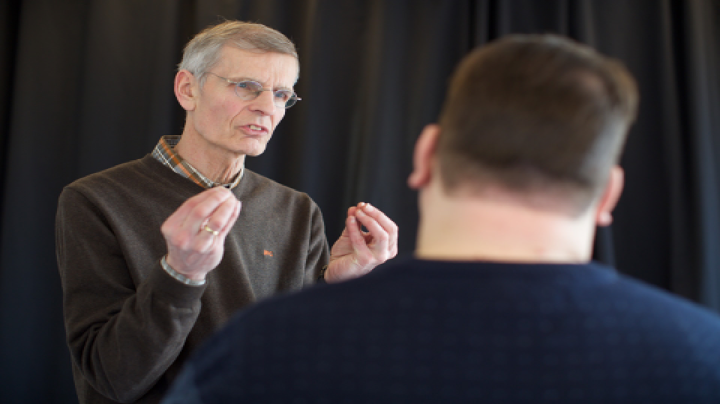Ideas for Massively Delivering Your True Purpose to the World
Over the past four weeks, we have covered the following, related four points:
- The problem with money is how we perceive it, including the fact that to acquire money, we must first create value for someone else.
- Creating value can be as an employee, a business owner or an investor.
- One of the best ways to generate income is to turn your value into a business.
- You only get what you ask for from life, including your compensation, which is related to how you value yourself and the value that you bring to the world.
Notice the common theme of value here? So, let's look at some very specific ways that you can create value and generate income. Since I can't cover every way under the sun for creating value in one blog post, and since we already talked about the benefits of being a business owner and the additional benefits and flexibility that come along with being a solopreneur, I'm going to focus on some work from home, solopreneur oriented ideas. In addition, I'm going to focus on ideas that are vehicles for spreading your gifts and your true purpose to the world in a massive way!
Consultant

A consultant is a person who provides expert advice professionally. There are many types of consultants including:
- Strategy
- Management
- Operations
- Financial
- Human Resources
- IT
- Marketing
- Sales
The types of consultants are aligned to the major functions within a business. There are many other types of consultants as well for almost any topic you can think of. Some people believe that you have to have decades of experience to be a consultant. While time and experience will make you more credible and potentially more effective, to be a consultant, you really only need to know a bit more than your clients to bring them value.
For example, when I was in my late twenties, I was working for KPMG Peat Marwick, which is one of the biggest consulting firms in the world, and we had a contract with the federal government to teach them about Total Quality Management. I was assigned to do a training session for a room full of nuclear submarine captains. Now these guys have some of the biggest egos in the world and here I am, I think I was about 27 years old, trying to manage a room full of nuclear submarine captains; i.e. the guys that carry around nuclear missile launch codes. That was an interesting experience, but here's the thing, I did know more about Total Quality Management then they did. So, I actually brought value to the room and was able to move forward in a way that brought more quality to the operations of nuclear subs. That was a fulfilling experience for me in my career.
Overall, I've consulted with various state and federal agencies as well as large companies such as Wells Fargo Bank and Kaiser Permanente. At Kaiser, I was actually part of a 1,000+ consultant team. We were working on a $4B+ project to convert all of Kaiser Permanente's medical records to an electronic based system so that as a Kaiser patient you could walk into any Kaiser facility and your records would be available. This huge project took about 10 years to complete!
So, if that sounds interesting, do you envision yourself as a consultant? If so, please send me an email as a I may have opportunities for you.
Coach

Let's define a coach. How's it different than a consultant? A coach is more of a trainer or instructor, somebody that urges you along and prompts you with instructions to move to the next step and improve your performance, skills, or mindset. Coaches tend to work with either people one-on-one or in groups. They also might work with business teams. Coaches focus on things like improving performance, improving skills, or maybe coaching you through some career difficulties and where you want to go in your life.
There are coaches that help you across all the dimensions of your life that we've talked about in previous posts, and then there's a class of coaches called executive coaches that work with business executives.
They're generally five areas that coaches help you on when they're working with you.
- Visions - Do you have a vision for what you want to create?
- Strategies - Do you have strategies for how you're going to get from where you are to where you want to be with your vision?
- Skills - What skills do you need to improve to get to your vision from where you are?
- Environment - is there anything in your environment that's holding you back? When we talk about environments, it is not just your home, but the people that you surround yourself with. The place where you live is important, but also the place where you work, what's going on there?
- Mindset - and lastly, and probably most importantly, is your mindset. What is it that you believe possible and what is it that you're telling yourself every day to either move you towards your vision or away from your vision?
Do you envision yourself as a coach? If so, please send me an email as I may have some opportunities for you.
Author

An author is a professional writer, somebody that gets paid to write. Jeff Goins, who's the author of "You are a Writer" and "The Art of Work", defines three types of writers
- Writers Who Write - these are authors who write a lot of books and who keep writing because they're aware that the more books they published, the more they will sell and the more money they'll make, Their keys to success are speed and efficiency.
- Writers Who Share Ideas - these are thought leader type writers who share ideas and sell millions of books. Examples include Seth Godin, Tim Ferris, Malcolm Gladwell, etc. who write best-selling books every few years, sharing new ideas and concepts. They're key to success is new ideas that resonate with the times.
- Entrepreneurial Writers - Jeff Goins, describes himself as an art authorpreneur. These writers have written a few books, mostly for credibility purposes, and these authors are coaches, speakers, and sell online courses. Their keys to success are content generation and marketing.
Do you envision yourself as a writer? If so, in addition to Jeff Goins books, check out:
- Book the Business: How to Make Big Money with your Book Without Even Selling A Single Copy by Adam Witty and Dan Kennedy
- APE - Author, Publisher, Entrepreneur: How to Publish a Book by Guy Kawasaki and Sean Welch
Speaker / Trainer

Professional speakers make tens of thousands of dollars per keynote speech. If you're just starting out and you're reasonably good on the stage, you can make between $2,500 to $5,000 per keynote. Seminar leaders or trainers are speakers that teach new concepts.
Do you envision yourself as a speaker or a trainer? If it's so, check out some of the great books on this topic:
- Start with Why: How Great Leaders Inspire Everyone to Take Action by Seth Godin
- Steal the Show: How to Guarantee a Standing Ovation for all the Performances in your Life by Michael Port
- Talk Like TED: The 9 Public Speaking Secrets of the World's Top Minds by Carmine Gallo
- Illuminate: Ignite Change Through Speeches, Stories, Ceremonies, and Symbols by Patti Sanchez and Nancy Duarte
- Resonate: Present Visual Stories that Transform Audiences by Nancy Duarte
Theses are all great resources if you're interested in speaking as a way to generate value and income.
Combining Value Creation Vehicles for Maximum Impact

Any one of these examples of creating value - coach, consultant, author, speaker, trainer - can be made into a six figure or even a multi six-figure solopreneur business. Then if you combine two or more of these approaches, you could create a seven figure business bringing your value to the world. If you think these numbers sound high, they're not. I know many people who have these types of businesses that they run from their home with small, outsourced teams.
Of course, there are many more ways to create value in this world. However, for this post, I chose these vehicles of value creation for their ability to reach thousands, millions and even billions with your gifts and true purpose. If you're really committed to living your true purpose, then there is no sense thinking small. Check out The Magic of Thinking Big by David J. Schwartz and remember the words of Marianne Williamson that inspired this blog in the first place, "Your playing small does not serve the world. There is nothing enlightened about shrinking so that other people won't feel insecure around you. We are all meant to shine as children do. We were born to make manifest the glory of God that is within us. It's not just in some of us, it's in everyone."
So how are you going to play big? Have a great week.
Stay connected with news and updates!
Join our mailing list to receive the latest news and updates from our team.
Don't worry, your information will not be shared.
